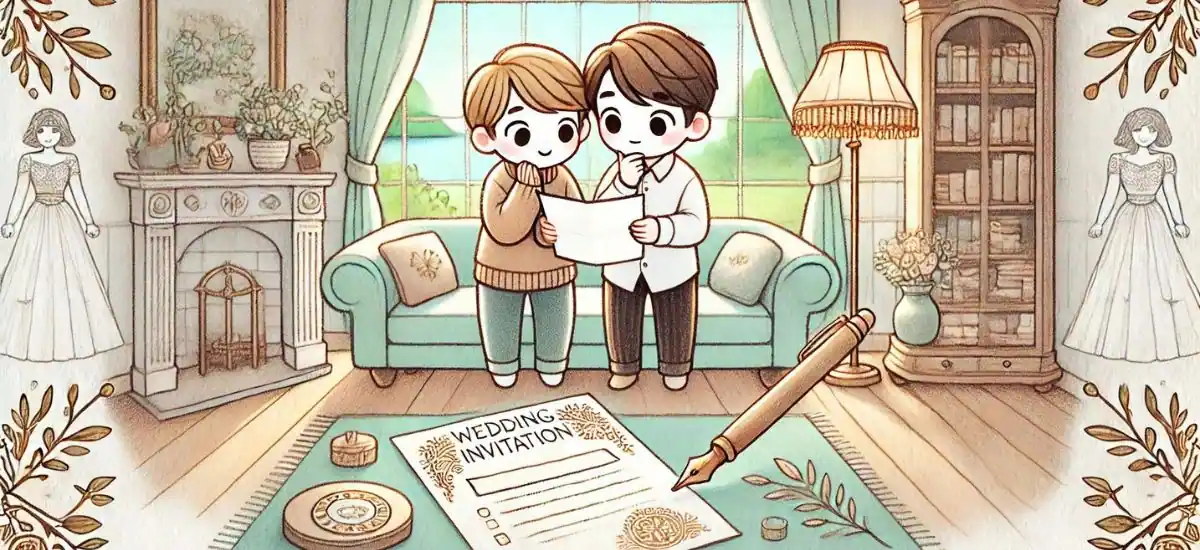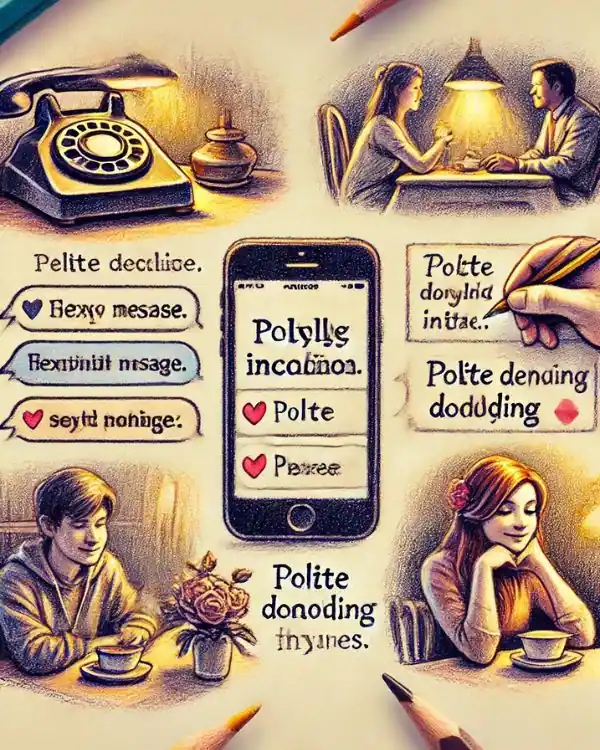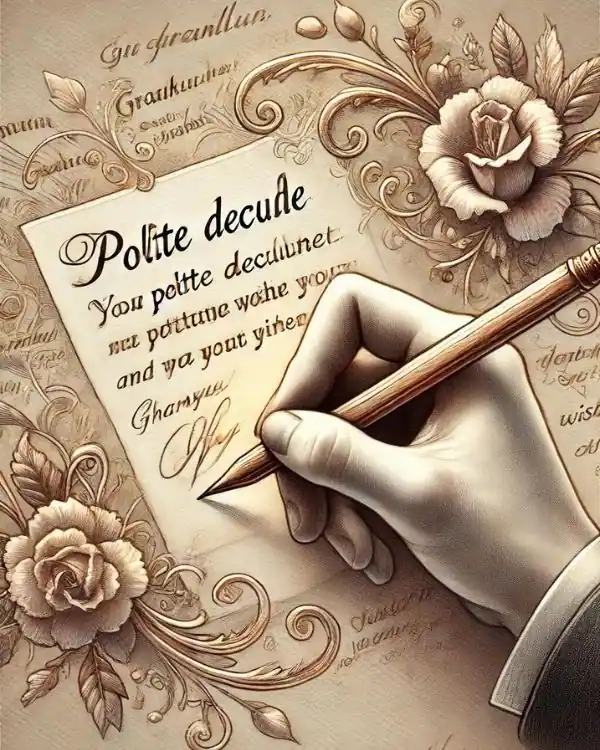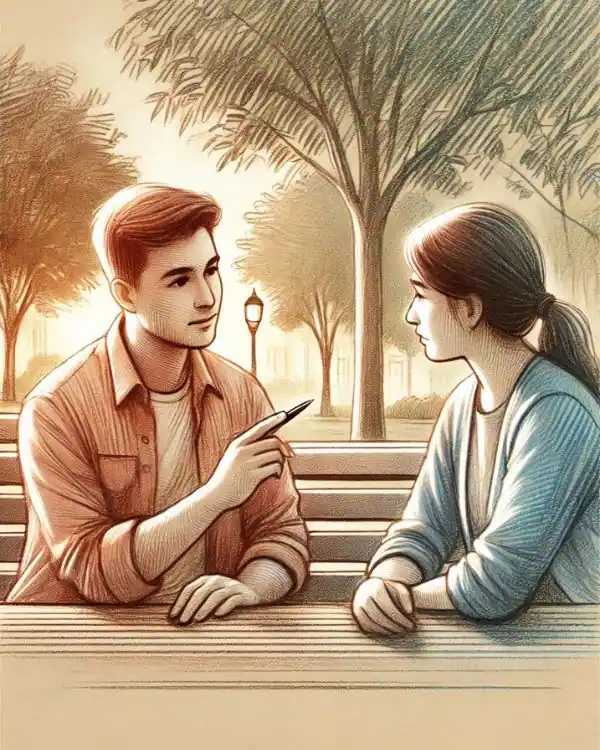Advertisement
By IS Team
How To Decline A Wedding Invitation Without Offending

Advertisement
Weddings are joyous occasions, but sometimes, attending every wedding you're invited to isn't possible. Understanding the importance of wedding invitation etiquette is crucial in these situations.
Declining an invitation politely is essential to avoid offending the couple. In this guide, we'll share practical tips and examples to help you navigate this social situation smoothly. We'll cover how to assess your reasons, the best methods to decline, and how to craft your message.
Plus, we'll provide additional tips for a gracious decline and ways to handle possible reactions, ensuring your response is respectful and considerate.
Assessing Your Reasons for Declining
Advertisement

Before declining a wedding invitation, it's important to assess your reasons. Clearly defining your reasons helps in communicating your decision effectively and respectfully.
Valid reasons for declining include:
- Personal conflicts: Family emergencies or significant personal events.
- Prior commitments: Other engagements already scheduled.
- Health issues: Conditions that prevent attendance or concerns about contagious illnesses.
- Travel constraints: Difficulties managing significant travel due to time or financial constraints.
- Work obligations: Important professional commitments.
Evaluating the necessity of attending versus the impact of your absence:
- Consider the relationship: For close friends and family, your presence might be more expected. For distant acquaintances, it may not be as impactful.
- Event's importance to the couple: If your attendance means a lot to them, weigh this against your reasons for declining.
- Your well-being: If attending would cause significant stress or hardship, it may be better to decline gracefully.
By considering these points, you can make an informed decision that respects both your needs and the couple's feelings, ensuring your decline is received with understanding and minimal offense.
Timing is Crucial
Responding promptly is key to declining an invitation politely. Here's why timing matters:
- Importance of Prompt Response: Early notification allows the couple to adjust their plans accordingly.
- Ideal Timeframe: Aim to respond within a week of receiving the invitation.
- Avoid Last-Minute Cancellations: Respect the couple's planning by informing them as soon as you know you can't attend.
Choosing the Right Method to Decline
Advertisement

Selecting the right method to decline a wedding invitation is crucial for ensuring your message is received with understanding and respect. Here are some effective ways to do so:
In-person conversation:
This is the best method for close friends or family. When to approach it:
- Choose a private, quiet moment.
- Ensure you have enough time to discuss without interruptions.
How to approach it:
- Start by expressing gratitude: "Thank you so much for inviting me."
- Clearly and kindly state your inability to attend: "I regret that I won't be able to make it."
- Offer a brief explanation if appropriate and send your best wishes: "I have a prior commitment that day. I wish you a beautiful wedding."
Phone call:
This offers a direct and personal touch.
- Tips for making the call:
- Find a quiet place to call.
- Start with appreciation: "Thank you for inviting me."
- Politely decline and briefly explain if needed: "I'm sorry, but I have a prior engagement. I hope you have a wonderful day."
- Express your best wishes: "I look forward to hearing all about it."
Written note:
Crafting a heartfelt and respectful message.
- How to write it:
- Start with a thank you: "Thank you so much for inviting me to your wedding."
- Clearly state your regret: "Unfortunately, I won’t be able to attend."
- Provide a brief reason if appropriate: "Due to a prior commitment."
- End with warm wishes: "Wishing you all the best on your special day."
Email:
Maintaining formality and a personal touch in digital communication.
- How to compose it:
- Begin with gratitude: "Thank you for including me in your special day."
- Clearly and politely decline: "I regret to inform you that I won't be able to attend."
- If suitable, offer a brief explanation: "I have a conflicting engagement."
- Conclude with well wishes: "Wishing you a joyous wedding and a happy future together."
Choosing the right method ensures your message is communicated effectively, maintaining the tone and flow while respecting the couple's feelings.
Crafting Your Decline Message
Advertisement

Creating a thoughtful message involves several key components:
A. Key Components of a Polite Decline
- Expressing gratitude: "Thank you so much for inviting me to your special day."
- Clearly stating your inability to attend: "Unfortunately, I won't be able to attend."
- Providing a brief and genuine reason (if appropriate): "Due to a prior commitment, I am unable to make it."
- Sending best wishes for the wedding and future: "Wishing you both a beautiful wedding day and a lifetime of happiness."
B. Examples of Polite Declines
Here are some sample scripts for different situations:
- Close Friend: "I am so honored by your invitation. Sadly, I have a prior commitment that day, but I can't wait to hear all about it and celebrate with you another time."
- Distant Relative: "Thank you for thinking of me. I'm unable to attend due to personal reasons, but I send my warmest wishes for your wedding."
- Colleague: "I appreciate the invitation to your wedding. Unfortunately, I have a conflicting engagement, but I hope you have a fantastic celebration."
Phrases to Avoid to prevent misunderstanding or offense:
- "I just don't feel like going."
- "I don't know if I can make it."
- "I'll see if something better comes up."
Additional Tips for a Gracious Decline
When declining a wedding invitation, adding a thoughtful gesture can soften the impact and show your continued support and affection for the couple.
Here are some additional tips for a gracious decline:
Offering to meet up or celebrate at a different time:
- Suggest a post-wedding get-together: "I'd love to catch up after the wedding and hear all about it."
- Plan a celebratory dinner or coffee date: "Let's plan to celebrate your marriage when things settle down."
Sending a gift or card in your absence:
- A thoughtful gift can show you care: "I'm sending a little something to celebrate your special day."
- A heartfelt card with your best wishes: "Although I can't be there, I'm thinking of you and wishing you both all the best."
Expressing interest in seeing photos or hearing about the event afterward:
- Show that you still want to be part of their joy: "I can't wait to see the wedding photos and hear all about your beautiful day."
- Stay connected by expressing your excitement for their future: "I'm looking forward to hearing all about it when we next meet."
These additional gestures help maintain a positive relationship and show that you value the couple and their special day, even if you can't be there in person.
Dealing with Possible Reactions
Advertisement

When declining a wedding invitation, be prepared for different reactions. Here’s how to handle them gracefully:
Understanding that some disappointment is natural:
- The couple might feel disappointed. This is natural.
- Acknowledge their feelings: "I understand that you’re disappointed, and I wish I could be there to celebrate with you."
How to handle follow-up questions or pressure gracefully:
Advertisement
- Keep your response brief and honest: "I have a prior commitment that I can't reschedule."
- Stand firm but kind: "I truly wish I could be there, but unfortunately, I can't make it."
- Avoid lengthy explanations or feeling pressured to change your decision.
Reaffirming your appreciation and support for the couple:
- Express your gratitude: "Thank you so much for understanding. I appreciate your kindness."
- Show your support: "I’m looking forward to hearing all about your wonderful day and celebrating with you another time."
- Send best wishes: "Wishing you both a beautiful wedding day and a lifetime of happiness."
By handling their reactions with understanding and grace, you can maintain a positive relationship and show you care, even if you can't attend their special day.
Remember, it's all about honesty, respect, and kindness. Good luck! 🌟
Advertisement
I'm Looking For!








